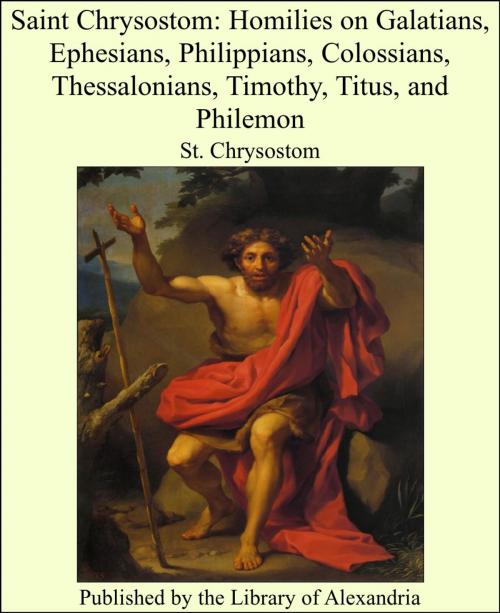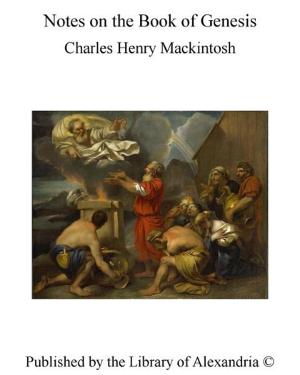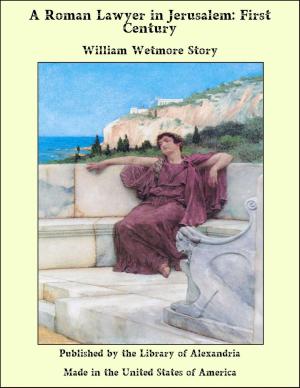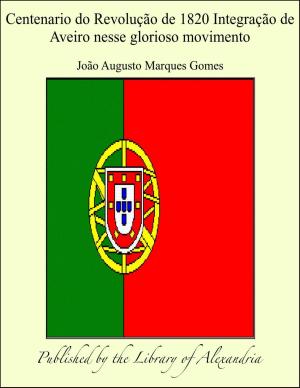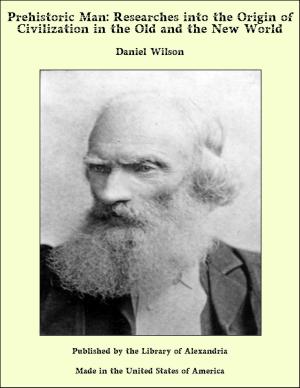Saint Chrysostom: Homilies on Galatians, Ephesians, Philippians, Colossians, Thessalonians, Timothy, Titus, and Philemon
Nonfiction, Religion & Spirituality, New Age, History, Fiction & Literature| Author: | St. Chrysostom | ISBN: | 9781465541178 |
| Publisher: | Library of Alexandria | Publication: | March 8, 2015 |
| Imprint: | Language: | English |
| Author: | St. Chrysostom |
| ISBN: | 9781465541178 |
| Publisher: | Library of Alexandria |
| Publication: | March 8, 2015 |
| Imprint: | |
| Language: | English |
EDINBURGH These Homilies are often less complete in exposition than those on earlier books of the New Testament, and in literary excellence will not compare with the Homilies on the Statues, and many Other discourses given at Antioch. But to the student of preaching, they are quite as instructive, if not really more so. Here at Constantinople the great preacher was burdened with administrative details, and harassed by Court intrigues, so that his sermons were often given with far less than his earlier careful preparation, and seem to have been generally left afterwards to the mercy of shorthand reporters, and of editors who sent them forth when he was in banishment or in the grave. Any minister who has winced to see an unwritten sermon or Other address of his own in the morning paper, with the accumulated and interlaced mistakes of reporter, compositor, and proof-corrector, can sympathize with the situation. But in fact the preacher thus appears in undress, and his methods may be in some respects the subject of a more profitable inspection. You see the sermon in about as imperfect, and sometimes distorted, a condition as it is seen in the actual delivery by many of the congregation. You see the frequent questions, the abrupt turns of phrase, the multiplied repetitions, by which a skilled and sympathetic preacher, keenly watching his audience, strives to retain attention and to insure a more general comprehension. You are drawn near to him, and almost stand by his side. John of the Golden Mouth is, upon the whole, our very best example,—most richly instructive and fruitfully inspiring,—in respect of expository preaching, which is of late beginning to be more highly valued and more frequently attempted in our country than ever before. We have many good models in Scotland, some in England, and a few at home. Nor should the student ever forget Luther, or fail to profit by the peculiar methods of some recent Germans; but one who is reasonably endowed with historical sympathy can learn most from Chrysostom. The study of an ancient preacher is in this respect like the study of the Greek and Latin classics, that it demands sympathy with ideas and persons far away from ourselves, thus broadening the intellect, invigorating the imagination, and deepening in us a true feeling for all that is human. One who is at first without interest in Chrysostom, perhaps even repelled by the extravagant expressions, the heaped-up imagery, the frequent bad taste (at least, according to our standards), of this eminently representative Asiatic Greek, is precisely the man that ought to read Chrysostom, if he wishes to educate himself in the broadest and highest sense. Study the great preacher till you can thoroughly appreciate and heartily enjoy him. This will be much aided, of course, by reading a biography, as that by Stephens, or the long article in Smith’s Dictionary of Christian Biography, or the introductory biographical sketch in the ninth volume of this series. You very soon find that he is profoundly in earnest, and all alive. Christianity is with him a living reality. He dwells always in its presence and companionship. We may discern what seem to us grave errors of doctrinal opinion, but we feel the quickening pulses of genuine Christian love and zeal. And how fully he sympathizes with his hearers! He thoroughly knows them, ardentlyloves them, has a like temperament, shares not a little in the faults of his age and his race, as must always be the case with a truly inspiring orator or poet. Even when severely rebuking, when blazing with indignation, he never seems alien, never stands aloof, but throws himself among them, in a vi very transport of desire to check, and rescue, and save. Is there, indeed, any preacher, ancient or modern, who in these respects equals John Chrysostom? His homilies are not directly a model for us, as regards the construction of discourse. The early Christians disliked to hear, or make, a smoothly symmetrical and elegantly finished oration like those of the secular orators. They wished for familiar and free addresses, such as we call a prayer-meeting talk; and this was precisely the meaning of their words “homily” and “sermon
EDINBURGH These Homilies are often less complete in exposition than those on earlier books of the New Testament, and in literary excellence will not compare with the Homilies on the Statues, and many Other discourses given at Antioch. But to the student of preaching, they are quite as instructive, if not really more so. Here at Constantinople the great preacher was burdened with administrative details, and harassed by Court intrigues, so that his sermons were often given with far less than his earlier careful preparation, and seem to have been generally left afterwards to the mercy of shorthand reporters, and of editors who sent them forth when he was in banishment or in the grave. Any minister who has winced to see an unwritten sermon or Other address of his own in the morning paper, with the accumulated and interlaced mistakes of reporter, compositor, and proof-corrector, can sympathize with the situation. But in fact the preacher thus appears in undress, and his methods may be in some respects the subject of a more profitable inspection. You see the sermon in about as imperfect, and sometimes distorted, a condition as it is seen in the actual delivery by many of the congregation. You see the frequent questions, the abrupt turns of phrase, the multiplied repetitions, by which a skilled and sympathetic preacher, keenly watching his audience, strives to retain attention and to insure a more general comprehension. You are drawn near to him, and almost stand by his side. John of the Golden Mouth is, upon the whole, our very best example,—most richly instructive and fruitfully inspiring,—in respect of expository preaching, which is of late beginning to be more highly valued and more frequently attempted in our country than ever before. We have many good models in Scotland, some in England, and a few at home. Nor should the student ever forget Luther, or fail to profit by the peculiar methods of some recent Germans; but one who is reasonably endowed with historical sympathy can learn most from Chrysostom. The study of an ancient preacher is in this respect like the study of the Greek and Latin classics, that it demands sympathy with ideas and persons far away from ourselves, thus broadening the intellect, invigorating the imagination, and deepening in us a true feeling for all that is human. One who is at first without interest in Chrysostom, perhaps even repelled by the extravagant expressions, the heaped-up imagery, the frequent bad taste (at least, according to our standards), of this eminently representative Asiatic Greek, is precisely the man that ought to read Chrysostom, if he wishes to educate himself in the broadest and highest sense. Study the great preacher till you can thoroughly appreciate and heartily enjoy him. This will be much aided, of course, by reading a biography, as that by Stephens, or the long article in Smith’s Dictionary of Christian Biography, or the introductory biographical sketch in the ninth volume of this series. You very soon find that he is profoundly in earnest, and all alive. Christianity is with him a living reality. He dwells always in its presence and companionship. We may discern what seem to us grave errors of doctrinal opinion, but we feel the quickening pulses of genuine Christian love and zeal. And how fully he sympathizes with his hearers! He thoroughly knows them, ardentlyloves them, has a like temperament, shares not a little in the faults of his age and his race, as must always be the case with a truly inspiring orator or poet. Even when severely rebuking, when blazing with indignation, he never seems alien, never stands aloof, but throws himself among them, in a vi very transport of desire to check, and rescue, and save. Is there, indeed, any preacher, ancient or modern, who in these respects equals John Chrysostom? His homilies are not directly a model for us, as regards the construction of discourse. The early Christians disliked to hear, or make, a smoothly symmetrical and elegantly finished oration like those of the secular orators. They wished for familiar and free addresses, such as we call a prayer-meeting talk; and this was precisely the meaning of their words “homily” and “sermon
